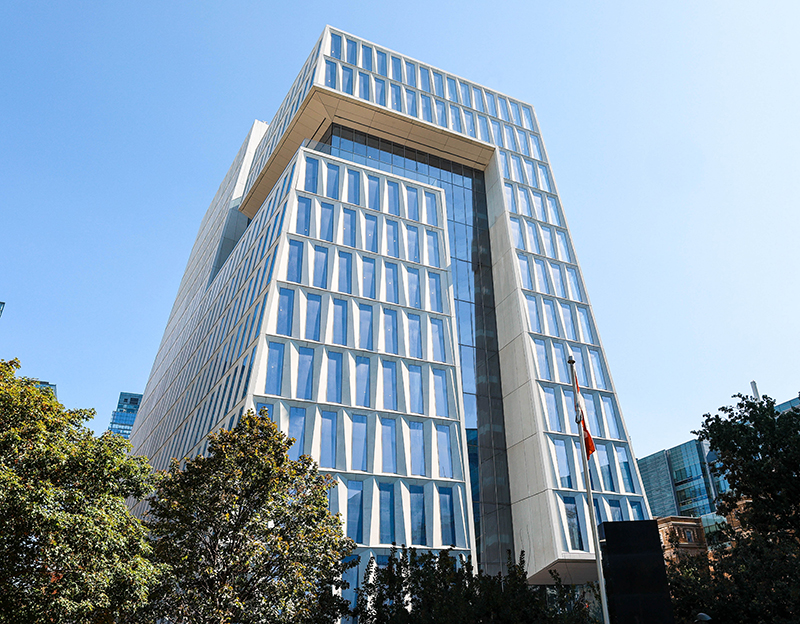In May, the University of Toronto will celebrate the official opening of the first phase of the Schwartz Reisman Innovation Campus. This iconic new building is already a hub for the university’s global leadership in artificial intelligence and machine learning. Its mission is to power the full supply chain of innovation in this burgeoning field, from ideas and scholarship to successful startups.
It’s iconic, not just because of its spectacular architecture, but also because of what it represents – a compelling vision of the university as a crucible of progress that is both revolutionary and human-centred, where we push the technological boundaries of what’s possible while ensuring these new tools benefit people and communities. It’s no accident that two of the building’s key tenants are the Vector Institute for Artificial Intelligence and the Schwartz Reisman Institute for Technology and Society.
We scarcely could have imagined this development 20 years ago. Toronto’s rise as a major global AI hub – with U of T as its anchor – happened so quickly that one could be forgiven for missing the important back story.
In 1987, Geoffrey Hinton arrived at U of T. He and his students began conducting fundamental research into the novel but unproven concept of artificial neural networks. Toronto appealed to Hinton, now a University Professor emeritus, because of the availability of public support for curiosity-driven research from the Natural Sciences and Engineering Research Council of Canada and the Canadian Institute for Advanced Research. Professor Hinton’s pathbreaking work, once given no hope for success, is now celebrated around the world. It powers everything from real-time language translation to frontier drug discovery to ChatGPT.
This story shows the importance of fundamental research. It changes the world. The Canadian government’s Pan-Canadian Artificial Intelligence Strategy, the world’s first national AI strategy when launched in 2017, was a visionary investment in Canada’s future. And Prime Minister Justin Trudeau’s recent announcement of major new funding to build on that strategy is welcome news. We must continue to invest in advanced research and prepare for the next big bang, whatever it may be.
The same story highlights the dramatic economic impact that can arise from such research. Celebrated local AI startups such as Waabi and Cohere have attracted hundreds of millions of investment dollars to Toronto. Indeed, Toronto’s innovation ecosystem, with U of T at its heart, is a massive economic driver for the region. In just 10 years, research from U of T alone has created 650 venture-backed startups, attracting more than $3 billion in funding, and generating 10,000 jobs.
And finally, the story contains a word of caution. Professor Hinton and others have recently drawn the world’s attention to pressing social, cultural, environmental and moral questions associated with AI’s rapid rise. Addressing questions about AI safety is at the heart of the Schwartz Reisman Innovation Campus’s vision – and an essential component of U of T’s approach to AI and human-centred technology.
Recent Posts
People Worry That AI Will Replace Workers. But It Could Make Some More Productive
These scholars say artificial intelligence could help reduce income inequality
A Sentinel for Global Health
AI is promising a better – and faster – way to monitor the world for emerging medical threats
The Age of Deception
AI is generating a disinformation arms race. The window to stop it may be closing






One Response to “ A Global Hub for Safe AI ”
Excellent article. I'm so proud to be a U of T grad.